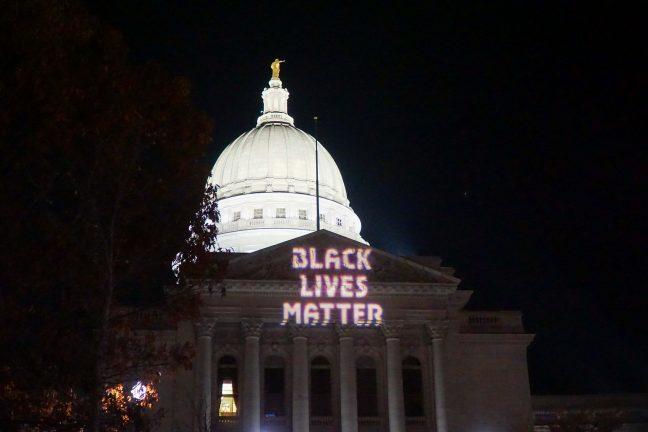February is Black History Month and many Wisconsinites may not be aware of the deep history African Americans have in building Wisconsin. The hard work of slaves did not earn them the same benefits of their white counterparts and Black men were forbidden to exercise their voice through voting.
According to University of Wisconsin Associate Professor of Afro-American Studies Christy Clark-Pujara, Black history and Black people in Wisconsin predates what became the state in the 1720s. Black people in Wisconsin were brought in by French fur traders — some were free, others were enslaved.
“You have small pockets of Black people so it’s not a torrent of people. We’re talking about dozens of people, hundreds of people and then thousands of people in the period that I study,” Clark-Pujara said. “It’s an experience that is both oppressive and progressive.”
Clark-Pujara said at this point in history, African Americans were brought into the region by lead prospectors and military officers and found themselves in “strange and hostile situations.”
For example, according to Clark-Pujara, well-known individuals in the state such as Henry Dodge and George W. Jones brought enslaved people in the early 1800s and illegally held them in bondage for years. Those who were enslaved did hard settlement labor, such as lead mining, without reaping the same benefits as the white colonial settlers.
“So the history of white and Black people in this space is very recent. As the state is forming, Black people are explicitly discriminated against and that’s not my opinion, that’s just a statement of fact,” Clark-Pujara said. “We can look at our founding document, The Constitution of the State in 1848 — it very clearly is a document that supports white supremacy.”
According to Clark-Pujara, the suffrage document in the 1848 Wisconsin Constitution explicitly forbids Black men from voting by making whiteness a requirement to vote.
Clark-Pujara also said the suffrage article states one must be 21 years of age, male and white. It also states an individual could be foreign-born white and reside in the state for a year to vote.
“So it wasn’t even about citizenship, it was about whiteness. This is because whiteness and citizenship were conflated in Wisconsin, as whiteness and citizenship were conflated throughout the slaveholding Republic,” Clark-Pujara said. “So as these new states are forming in the Midwest, they are forming in line with a racist nation, which is excluding Black people socially, politically and economically.”
Clark-Pujara said Wisconsin was a place where Black men were denied access to the ballot box repeatedly.
Clark-Pujara gave Joshua Glover as an example of a fugitive who was in search of freedom — the state labeled individuals like him as ‘freedom-seekers.’
“Black people are aware and not happy with their marginalization,” Clark-Pujara said. “So they are organizing, petitioning and pushing back as they tried to get the right to vote and they’re finally successful in doing that.”
Clark-Pujara said Wisconsin is both a progressive and oppressive state due to its long, layered and complex history.
Clark-Pujara also said enslaved individuals fighting for freedom is a reminder Black people never accepted the legacies of slavery and racism and the fight for equal rights was always initiated by Black people themselves.
“They weren’t waiting to be free, they weren’t waiting to be extended rights,” Clark-Pujara said. “They fought for their rights, they demanded their rights.”
According to Wisconsin Sen. Lena Taylor, D-Milwaukee, the number of disparities people of color experience in Wisconsin is normally the worst in the nation.
“We should not want to lead in those horrific ways. We should want to have results that don’t embarrass us as a state [and] don’t embarrass us as people,” Taylor said. “It’s unacceptable for us to be in this situation.”
Taylor also said it is important for people in Wisconsin to understand the state’s history.
Clark-Pujara said in order to understand American history, one should understand Black history.
“Black history is American history and way too often, especially in Wisconsin, African Americans are not afforded an opportunity to be recognized [and] be respected for the work that they do,” Taylor said. “It doesn’t matter if you’re Black, it doesn’t matter if you’re white, you should not want us to be in this position.”
According to Taylor, the disparities in Wisconsin are costly to the state because the money invested into the prison industrial complex is more than the amount of money spent on K-12 and higher education.
Taylor also said the money spent on the prison system could be money going towards other investments, but it becomes a vicious cycle beginning with our juvenile justice system and Child Protective Services.
“I want [students] to know they’re the future,” Taylor said. “They have to be a part of making us be what we want to see. No matter what, it’s up to them.”


